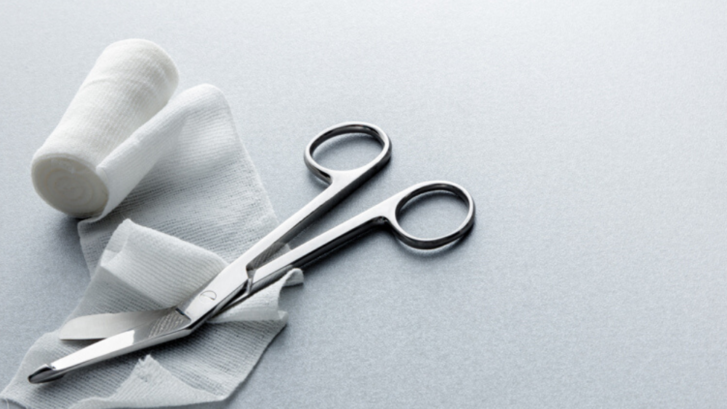True or False: Debunking Common Myths About Wound Care
Below are some facts about wound care!
1. It is best to clean a wound with hydrogen peroxide / rubbing alcohol.
False: Rubbing alcohol and hydrogen peroxide can actually delay the healing of wounds and cause damage to tissue. Although rubbing alcohol can minimize germ activity with the surface of the wound, it will also injure your cells that are part of the healing process. Hydrogen peroxide can have a similar effect. However, these can be used safely around the wound on intact skin though.
The most recommended method to clean a minor wound is by applying cool running water and sensitive-skin soap. However, for wounds that are deep, large and with uncontrolled bleeding, it is recommended to seek professional medical attention – such as an urgent care.
2. You should keep a wound moist.
True: It is better to keep your wound moist than dry! A study1 revealed that wet wounds healed a lot faster than dry wounds. The study also revealed that dry wounds suffered more inflammation and necrosis (dying off healthy tissue at the edge) than moist wounds. The key is keeping them moist with a petroleum jelly based ointment, NOT water. Excessive moisture from water can cause shriveling of the skin and wounds may re-open. Dressings that get wet must be changed promptly.
Physicians suggest to clean the wound areas daily and apply a thin layer of antibiotic ointment (such as Neosporin or even just Vaseline / petroleum jelly) will help to prevent an infection.
3. Leaving a wound covered would help it heal faster.
True: Some believe that leaving a minor wound uncovered will hasten the healing process, but that is far from the truth. In fact, leaving a wound covered with a bandage will indeed help the wound heal faster. When uncovered the wound is more likely to dry out and the chances of a scab forming heightens. An uncovered wound also has a greater chance of re-injury. It is also much more practical to keep a wound moist when it is covered.
4. A bandage is only used to keep air out of the wound.
False: Bandages serve many purposes other than to keep air out of a wound and most bandages don’t actually keep air out. When properly covered, a bandage can help protect a wound area from rubbing against other surfaces that may have dirt or bacteria. Keeping a wound bandaged can help the wound heal faster and prevent infections. If you have suffered a cut wound, a bandage can also help hold the edges of the cut together and reduce the appearance of scarring.
Keep in mind that you should always clean the wound first before applying ointment and a bandage to the wounded area.
When should I see a doctor for my wounds?
You should seek medical attention for a wound that:
- Will not stop bleeding after 5-10 minutes of pressure;
- Is deeper or longer than half an inch;
- Is near the eye;
- Is gaping or ragged;
- Was caused by something dirty or rusty;
- Has dirt or gravel stuck in it;
- Is extremely painful;
- Shows signs of infection;
- Was caused by an animal or human bite
Where can I go to seek medical attention for my wounds?
Healthpointe offers a wound management program to assist in treating various forms of tissue damage and wounds.
Contact Healthpointe for quality wound care solutions today, and receive immediate medical attention for your wounds.
For any questions, call 888-719-8448 or walk in to any of our locations such as, the Corona office near Norco, Home Gardens, Mira Loma and Pedley.
Medically Reviewed by Dr. Roman Shulze

